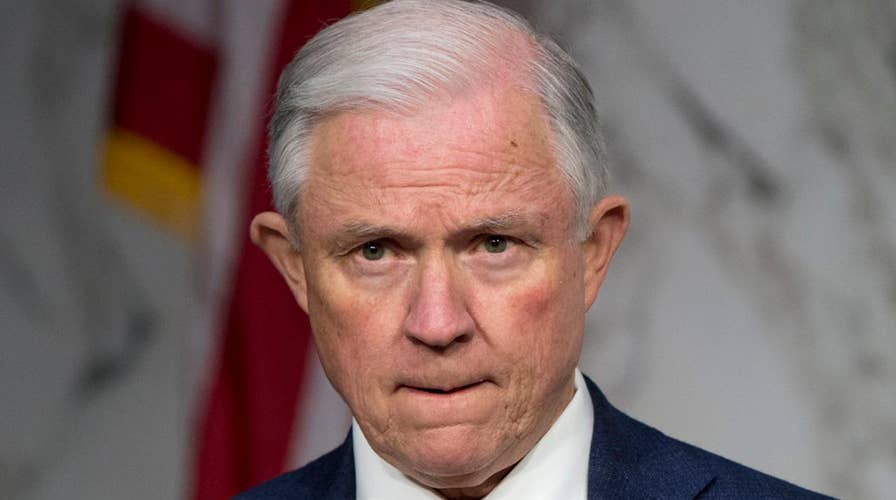Sessions rescinds Obama-era policy allowing legal marijuana
Washington Times legal reporter Alex Swoyer weighs in.
Attorney General Jeff Sessions has rescinded an Obama administration policy that blocked U.S. attorneys from prosecuting marijuana cases in states where the drug is legal. He announced Thursday that he is instead leaving it up to federal prosecutors to use their discretion in determining whether to enforce the federal law banning the sale and use of the drug.
It’s not clear what the full effect of this new policy will be. But it suggests the Justice Department may be planning to strongly enforce federal drug laws against the budding marijuana industry.
Regardless of one’s views on marijuana, or drug use in general, this is an unfortunate move by the federal government. There are many issues which, by their nature, are federal issues. Punishment for drug use is not. In general, states should be allowed to police themselves.
America is an experiment in federalism, and the states represent 50 laboratories where we can try out different laws and lifestyles. It’s a chance for citizens to vote their preferences without forcing other states to go along. It’s a chance to see what works and what doesn’t.
And, hopefully, if something does work, it’s a chance for the idea to spread.
For decades now there has been a movement to decriminalize marijuana. In recent years, it’s picked up steam, and there seems to be a general shift in public views on cannabis. Attorney General Sessions may not agree with this shift, but he should at least recognize it represents the beliefs of his fellow citizens.
Washington, D.C., and eight states – Alaska, California, Colorado, Maine, Massachusetts, Nevada, Oregon and Washington – have legalized recreational marijuana. Another 29 states allow for its medical use. These numbers seem likely to increase.
The people have spoken. They should not be overruled by the Justice Department. As Republican Sen. Cory Gardner of Colorado put it, Sessions’ decision “has trampled on the will of the voters.”
Gardner went further, noting that President Trump has said legalization should be up to the states. Gardner also said that before he “voted to confirm Attorney General Sessions, he assured me that marijuana would not be a priority for this administration.”
In general, both President Trump and Sessions have seemed to be on the side of states’ rights. Reversing the Obama administration policy against prosecutions suggests that stance is more a matter of convenience.
I don’t smoke marijuana and don’t recommend others do. But I’ve had friends who use it, and I believe it should be their decision. The idea that such people might be up on federal charges is dismaying.
It’s not as if the Justice Department lacks for things to do. There are many urgent issues it needs to deal with – border problems, terrorism, and civil rights, to name a few.
So it’s sad to see the department fighting the tide of public sentiment and the will of citizens over what should be a state decision. It isn’t worthy of the department.
Perhaps legalizing marijuana is a horrible idea. Maybe the states will regret what they’ve done. But if they do, let them change their ways based on the voters’ preferences, not the preferences of the U.S. attorney general.









































